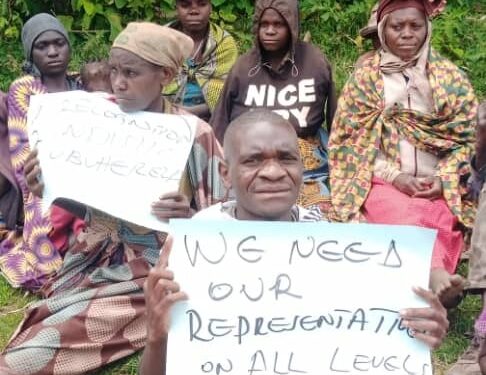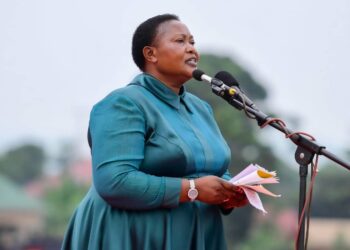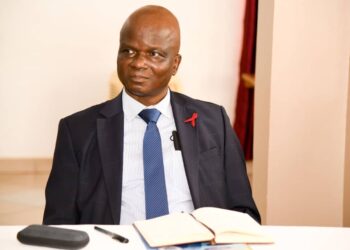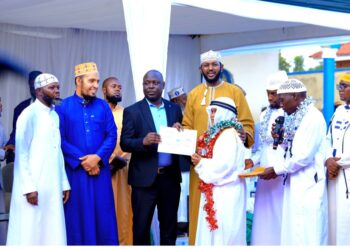Kabale: The Batwa Development Organization (BDO) has raised strong concerns over the exclusion of the Batwa minority group from government-led developmental programs, prompting calls for immediate action.
Mr. Semajeri Gad, the Executive Director of BDO criticized the government for its persistent exclusion from its programs. He cited the Parish Development Model, Emyooga, Operation Wealth Creation, and other employment opportunities as programs that have consistently failed to benefit the Batwa community. The absence of government interest in addressing this issue has further deepened the sense of betrayal felt by the Batwa.
Speaking to our reporter at the White Horse Inn in Kabale Municipality, Mr. Semajeri highlighted the Batwa’s unwavering loyalty to the government despite being consistently overlooked. He emphasized that the recent Parish Development Model campaign disregarded the Batwa entirely, denying them the chance to benefit from this crucial initiative.
In an effort to rectify this dire situation, Mr. Semajeri revealed his plan to write a letter to His Excellency the President of Uganda, urging the creation of a special wealth creation program specifically tailored to uplift the Batwa community. He emphasized that the ongoing plight faced by the Batwa is largely a result of their lack of representation at both local and parliamentary levels. As indigenous people, the Batwa endure systematic discrimination from the government and various sectors of society, with their rights being neither recognized nor respected.
Currently, the Batwa community owns a meager amount of agricultural land, predominantly situated in hard-to-reach hilly terrain near the forest. Unfortunately, these lands are also the least productive. Prior to the designation of the Echuya forest as a central government reserve, it had already suffered from extensive encroachment. Traditional activities such as hunting, honey collection, mushroom picking, water sourcing, bamboo harvesting for basket making, and gathering building materials like poles and firewood were shared between the Batwa and non-Batwa dominant ethnic communities.
Lack of alternative protein sources has forced the Batwa into illegal hunting within the forest. Furthermore, the forest holds significant cultural importance for the Batwa, who engage in religious rituals and sacrifices honoring their gods. However, when decisions were made to exclude the Batwa from the forest, they were neither involved in the decision-making process nor consulted or compensated for their displacement.
Consequently, a substantial portion of the Batwa population has been rendered landless, thrust into extreme poverty, and reduced to a life of destitution as squatters on lands owned by non-Batwa individuals. In their desperate quest for survival, many Batwa have resorted to begging, engaging in cheap manual labor, prostitution, and theft.
The current circumstances faced by the Batwa community epitomize their marginalization, internal displacement, and environmental refugeedom. Urgent attention is required to address their dire plight, which includes immediate recognition of their rights, provision of alternative livelihood opportunities, and the implementation of comprehensive development programs specifically tailored to their unique needs. It is of utmost importance that the government takes prompt action to ensure that the Batwa, as an integral part of Ugandan society, are granted equal opportunities for progress, development, and representation.
Do you have a story in your community or an opinion to share with us: Email us at editorial@watchdoguganda.com













